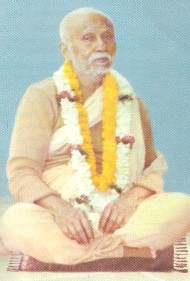Before the beginning of this book, we want to clarify a few pertinent points. The purpose of man's life is to attain Absoluteness in the evolutionary path [vikash]. All conventions, ethics, knowledges and sciences of mankind are, fundamentally, to support that purpose of human life. When atman is disregarded, failure prevails in all aspirations of human live. And all foundations of dharma [religion], state, society and education are taken over by confusion and chaos. Consequently, human existence—both at individual level and at collective level—becomes grief-stricken and disturbed.
On analysis of various religious, social or political doctrines present in today’s world, it becomes evident that some of them aspire to manifest the absolute development of life, while the goal of some of the others subsists in thuggish atrocities, hatred, barbarism and enjoyment of material and sensual pleasures [bhoga]. Body and atman are inseparably linked to our existence. Some men form the goal of their life encompassing around body; however the wiser ones set up all customs and ethics of individual and collective life focusing on atman. The Indian social thinking is, therefore, especially incommensurable to all other social thoughts of the world. The foundation of social thoughts of other nations have been laid based on material and sensual enjoyment [bhoga] and body; whereas atman is situated at the centre of Indian social thinking.
I exist and my body too exists. Here “I” has been used to refer to atman. My body is sustained by that atman. After thorough research, revered rishis have affirmed that among body and atman, it is indeed atman, which is the eternal and real entity. That is why rishis made gigantic efforts to lay foundation of Indian social thinking based on atman. Till now, the educated are ignorant regarding Indian social thinking. It should be disseminated with due endeavour. Then, Indian society will be stabilized based on this foundation. In medieval ages, India forgot her political and social thought based on Shaktivada; consequently, there came the fall.
Our selfhood gets expressed through body, mind and atman. Although social thinking of all nations but India is based on “body”, nowadays the modern educated people are aware of psychology to some extent. After admitting the existence of mind, man becomes spiritualist. After recognising the entity of mind, none remains as a materialist. If we classify human social thinking in the light of psychology, none will dare to deny this idea in the present age. All social thinking can be classified in three classes based on psychology: 1) asuric [evil] social thinking, 2) weak [durbala] social thinking, and 3) powerful social thinking. This book on path to evolution deals with different stages of psychology. After a careful study of the book, the reader will find food for all kinds of thoughts. It is sad to note that in medieval age, India [Bharata-varsha] was engrossed in weak social thinking. Those who desire to perceive the Indian socio-political thinking should read the books “Shaktivada: A Powerful Commentary on Politics” and “Empowering Society”.
In the first chapter, based on the image associated with flag we have attempted, somewhat philosophically, to demonstrate that the purpose of human life is atman; and it is necessary that human activities [karma] and knowledge [jnana] are in conformity with atman. If this chapter is difficult for anyone to grasp, he should start reading from the second chapter.
The Book One of this work contains four small chapters. Chapters from the second to fourth describe three stages of our psychological development. In the first chapter, an exposition on atman has been done based on flag. We have anchored the discussion of the second, third and fourth chapter on elucidating the dhyana-mantras [mantras for meditation] for Ganesha, Surya and Vishnu respectively. They represent the three stages of evolutionary development of human psychology. Our work may seem like an uncharted territory to the readers; but it will contribute lavishly to their food for thought.
|

